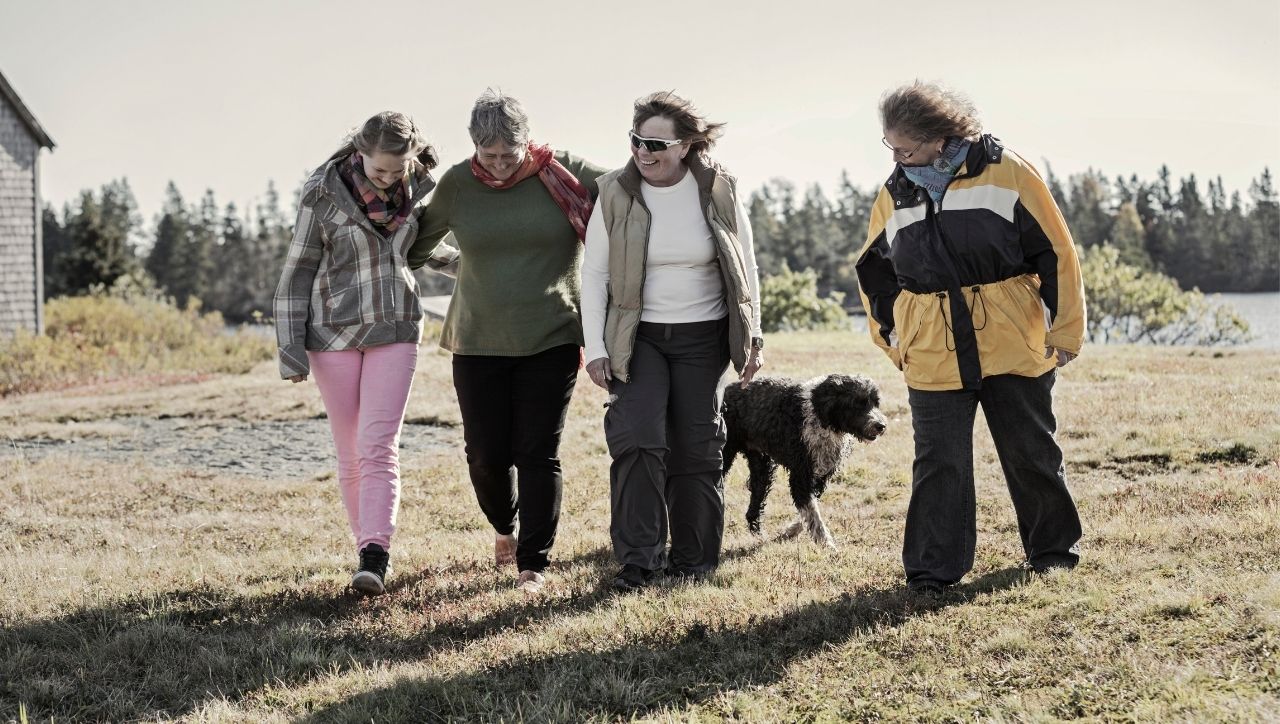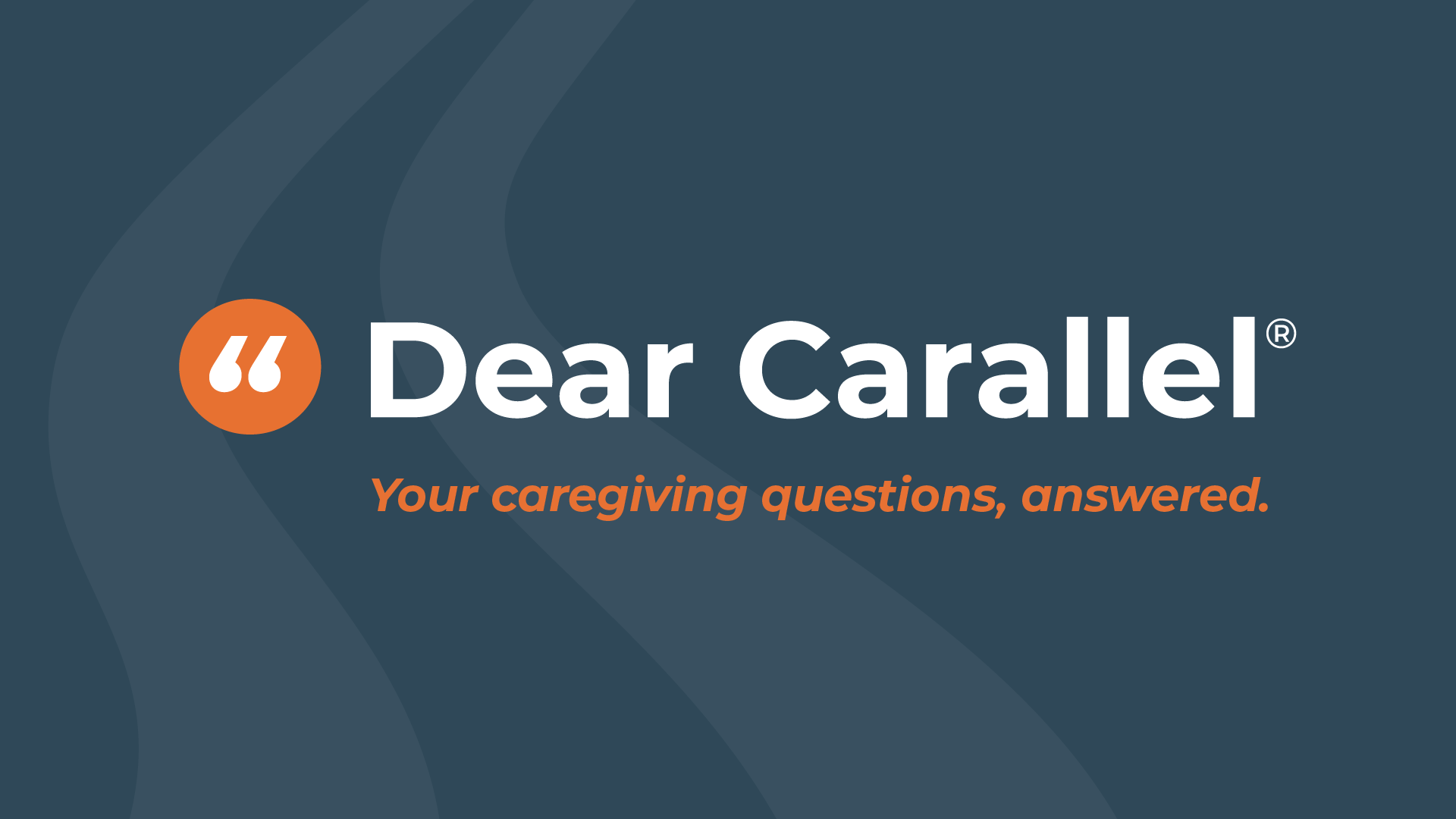Caregiver Blog | 05/26/22
Navigating the Family Dynamics of Caregiving

The family dynamics of caregiving can often be a complicating factor; often adding even more stress to an already stressful time when a loved one needs care.
We help thousands of family caregivers each year on our Caregiver Support Line and if we had a Top Ten list of challenges we hear about, family dynamics would surely make the list.
Here are three common scenarios our Care Advocates see and some practical tips to manage through them.
When There Are Disagreements Between Siblings
Ah, siblings. We love them but for many people, sibling relationships can be difficult. In the best of times, and definitely while caregiving.
We often hear from caregivers who are having problems with a sibling because:
- One isn’t accepting, or outright denying, the reality of your loved one’s condition.
- The division of caregiving duties isn’t equal.
- Past disagreements or grudges have been brought back to the forefront as a result of a loved one needing care.
- ‘Armchair quarterbacking’–when a sibling who is less involved is criticizing and questioning decisions without offering help
- One is unwilling, or unable, to help
While there isn’t a magic wand we can wave as caregivers to make this all go away, there are tactics we can use to work through challenged sibling relationships. Here are a few.
Set emotional boundaries
Easier said than done, but it can be done.
- Keep conversations fact based instead of emotional as much as possible.
- Leave the past in the past to the extent that you can.
- Ask for help.
- Try to get comfortable saying no.
Have a family meeting (in person or virtually)
Family meetings can be an invaluable tool to help navigate the family dynamics of caregiving. They can be a great way to get everyone on the same page with regard to what kind of support your loved one needs, how often they need, and who can do what.
- Take a collective three deep breaths before the meeting as a grounding exercise and state intentions for the meeting.
- Stick to the facts.
- Try using mirroring techniques in your communication. Not familiar with them? This article from The Wall Street Journal explains it well.
- Get a neutral party from outside the family (such as a Carallel Care Advocate) to facilitate these meetings.
Be open minded and willing to adjust
This may seem simple on the surface. It is not.
Especially when deep rooted family dynamics are at play. So we can all benefit from being intentionally open minded and willing to adjust when it comes to working with siblings to provide the care and support that our loved one needs.
When Our Loved One Refuses Help
Perhaps our loved one doesn’t want to be a burden. Maybe they’re too proud to accept help or in denial that they actually need it.
Whatever the reason, few things in caregiving can be as frustrating.
Here are a few tips that can help us break through the frustration and get our loved one to let us help them.
- Accentuate the positive.
- Provide options instead of mandating.
- Enroll your loved one in the process of their care.
- Make it about you (ie, if you won’t do it for yourself, will you do it for me?).
- Get coaching from an outside source, such as a Carallel Care Advocate
When the Caregiver Won’t Accept Help
We see this most often when adult children are witnessing one of their parents care for another, or for their own parent. It can be a helpless feeling when we want to support our parents but they won’t let us.
Here are some tactics that might help you.
- Show up and listen, don’t give advice (unless asked)
- Offer to do something specific that they clearly need, rather than asking “how can I help?”. Better yet, just do that thing they clearly need without getting in their way.
- Reinforce that you’re there for them. “You’ve got Mom and I’ve got you.”
- Family meetings can be helpful here, too.
The family dynamics of caregiving are usually complex and often difficult, but we hope these tips and tricks make navigating them just a touch easier.
Get in touch to see how Carallel can help your organization support family caregivers. Call 833-227-2553 or email info@carallel.com.
The latest from Carallel

Caregiver Journey Webinar
A Caregiver Conversation by Carallel: A Guide to Palliative Care
But palliative care, a frequently misunderstood (and underutilized) form of medical care can help....

Caregiver Question
He refuses help that he clearly needs. What do I do?!?
DEAR CARALLEL: My partner has some dementia. I began noticing changes in his behavior a few years ago and we eventually got the diagnosis of...